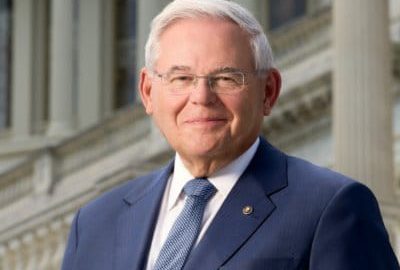US Senator Bob Menendez’s is accused of “selling the power of his office” by accepting bribes of gold, cash, and a Mercedes Benz to assist New Jersey businessmen and act as a foreign agent for Egypt, according to federal prosecutors. Assistant US Attorney Paul Monteleoni, during his closing argument, emphasized the gravity of the charges, stating, “Robert Menendez, the senior US senator from the state of New Jersey, the ranking member and then-chairman of the Senate Foreign Relations Committee, put his power up for sale.” Monteleoni depicted Menendez’s conduct as a “clear pattern of corruption.”
Monteleoni asserted that Menendez’s ambition extended beyond holding significant power in Washington. “It wasn’t enough for him to be one of the most powerful people in Washington,” he said. “Robert Menendez wanted all that power and he also wanted to use it to pile up riches for himself and his wife.” These remarks underscore the prosecution’s stance that Menendez exploited his position for personal gain.
Evidence Presented in Court
Throughout the trial, jurors were presented with substantial evidence, including gold bars seized by federal agents from Menendez’s home in New Jersey in June 2022. Additionally, FBI agents discovered over $480,000 in cash, much of it concealed in envelopes and hidden within clothing, closets, and a safe. Furthermore, more than $70,000 in cash was found in his wife Nadine Arslanian Menendez’s safe deposit box. This evidence aims to establish a direct link between Menendez’s official actions and the alleged bribes.
Menendez, aged 70, has vehemently denied all 16 criminal charges against him, which include bribery, fraud, acting as an unregistered foreign agent, and obstruction of justice. Nadine Menendez is scheduled to stand trial separately in August due to a breast cancer diagnosis. The prosecution argues that the couple’s actions were part of a broader scheme to illicitly benefit the Egyptian and Qatari governments, as well as New Jersey businessmen Fred Daibes, Wael Hana, and Jose Uribe, in exchange for substantial financial and material benefits.
Repeated Legal Battles against Senator Menendez
This case marks the second time Senator Menendez has faced federal criminal charges related to corruption during his nearly two-decade tenure in the Senate. His previous trial ended in a mistrial when the jury failed to reach a verdict. The current charges stem from actions Menendez allegedly took in his official capacity to benefit the interests of the aforementioned businessmen and foreign governments in exchange for hundreds of thousands of dollars in bribes.
Menendez’s co-defendants, including his wife Nadine and the businessmen involved, have also pleaded not guilty. The trial has drawn significant attention due to Menendez’s prominent role in the Senate and the serious nature of the allegations. As the trial nears its conclusion, the outcome remains uncertain, but the prosecution’s portrayal of Menendez’s actions as a gross abuse of power aims to sway the jury towards a conviction.
Defense and Financial Discrepancies.
In response to the allegations, Menendez’s defense team argued that the cash found at his residence, totaling $486,000, was accumulated over 30 years from regular bank withdrawals. Additionally, the defense claimed that the 13 gold bars seized by the FBI were gifts from Nadine Menendez’s wealthy family in Lebanon. These arguments aim to cast doubt on the prosecution’s narrative and suggest that the assets in question were not the proceeds of corruption but rather legitimate personal savings and family gifts.
Despite the defense’s explanations, the prosecution has maintained that the evidence points to a clear pattern of corrupt behavior. The substantial sums of money and gold bars, combined with the luxurious Mercedes Benz, paint a picture of a politician willing to compromise his office’s integrity for personal benefit. As the trial draws to a close, the jury’s decision will not only impact Menendez’s future but also send a broader message about accountability and corruption in American politics














